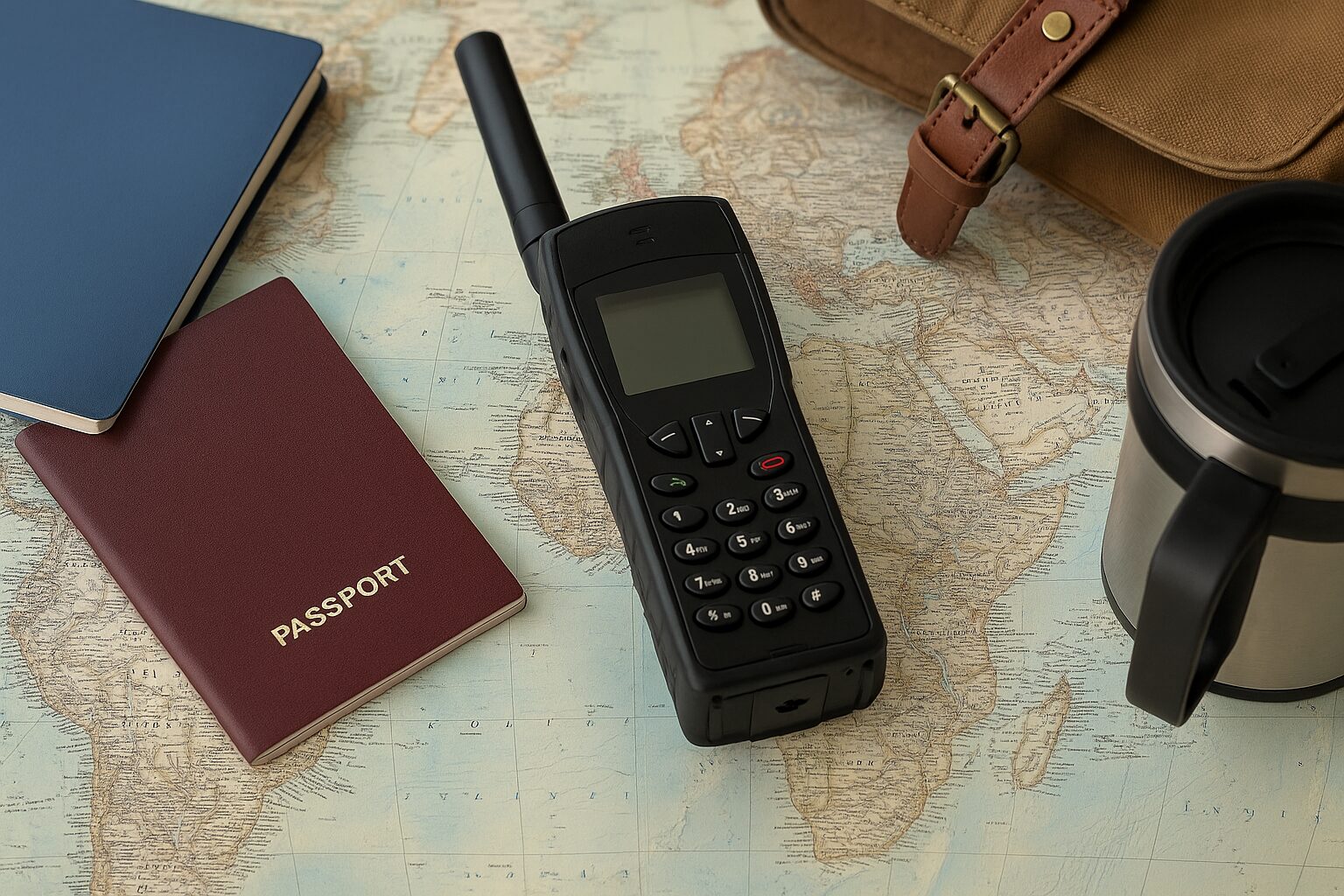In an increasingly connected world, staying in touch while traveling off the grid is more essential than ever. Whether you’re planning a remote hiking expedition or a sea voyage, a satellite phone—often referred to as a satphone or satellite mobile phone—can be your lifeline. However, these unique devices come with complexities, from legality concerns to understanding how satellite phones work.
This comprehensive guide breaks down everything you need to know about satellite phones, especially for travelers navigating off-grid destinations.
What Is a Satellite Phone?
Unlike traditional cell phones that use terrestrial towers, satellite phones connect directly to satellites orbiting Earth. This enables users to make calls and send messages from virtually anywhere—deserts, oceans, mountains, or remote villages—where regular signals can’t reach.
Popular networks include Iridium, Thuraya, and Inmarsat, which offer global or regional coverage. These phones are commonly used in emergencies, survival situations, or by explorers, military personnel, and journalists.
Why Use a Satellite Phone While Traveling?
If you’re venturing into off-the-grid locations or remote areas without consistent cellular service, a satellite phone for emergencies becomes a critical tool. It’s ideal for:
- Backpacking in the wilderness
- Boating or fishing off the coast
- Traveling through disaster-prone or conflict zones
- Long-distance overland expeditions
Some satellite phones also include GPS tracking, emergency beacons, or texting apps, making them versatile for both personal and professional travel.
Are Satellite Phones Legal?
One of the most common questions travelers ask is, “Are satellite phones illegal?” The answer depends on where you’re headed.
Legal in most countries: The United States, Canada, and much of Europe allow unrestricted use of satellite phones.
Restricted or illegal in others: Countries such as India, China, North Korea, Cuba, and some parts of the Middle East have restrictions. In India, for instance, Iridium devices are banned unless authorized by the government.
Before your trip, check local regulations. Some travelers have had their satellite phones confiscated at customs, while others faced fines for illegal usage.
Can Civilians Buy and Use Satellite Phones?
Yes, civilians can purchase satellite phones, often through dedicated satellite phone stores or online platforms. These devices are no longer exclusive to government or military personnel.
Some common traveler questions include:
- Where can I buy a satellite phone? Online retailers, outdoor gear shops, or directly from satellite phone carriers.
- Can a satellite phone call a regular phone? Yes, they can call both landlines and mobile numbers.
- Can a satellite phone be tracked? Yes, most are traceable through GPS or the satellite network.
Prices vary: expect to pay anywhere from $500 to $2,000 for a device, plus monthly or prepaid service plans. Some services offer rentals, ideal for short-term travel.
How Do Satellite Phones Work?
Wondering how a satellite phone works? When you make a call, the phone sends a signal to the nearest satellite. That satellite then connects to a ground station, which routes your call to its final destination—whether that’s another satellite phone or a regular number.
There are two types of networks:
- LEO (Low Earth Orbit): Offers better voice quality and faster connection times (e.g., Iridium, Globalstar).
- GEO (Geostationary): Provides broad coverage with fewer satellites but may have a signal delay (e.g., Inmarsat).
Note: You need a clear line of sight to the sky—satellite phones don’t work indoors or underground.
Emergency and Off-Grid Use
Emergency satellite communicators are designed for survival. Whether you’re lost in a forest or facing a medical emergency on a mountain, satellite phones can send SOS alerts, connect with emergency services, or help rescuers locate you.
In addition to emergencies, they’re great for:
- Off-grid vacations
- Boating adventures
- Backpacking trips in remote regions
Travelers often pair satellite phones with offline maps, portable solar chargers, and emergency kits for maximum safety.
Satellite Phone FAQs
Here are quick answers to common traveler questions:
- Can satellite phones be hacked? While highly secure, like all tech, they are not immune. Stick to reputable models and avoid unsecured connections.
- Do I need a SIM card? Yes, most satellite phones require a specialized satellite SIM card.
- Can I rent a satellite phone? Absolutely. Rentals are available globally and are perfect for short expeditions.
Legal Frameworks Around the World
Here’s a quick look at the legal status of satellite phones in popular travel regions:
| Region | Legal Status | Notes |
|---|---|---|
| USA | ✅ Legal | Widely used in marine & adventure travel |
| Canada | ✅ Legal | Ensure compatibility with local networks |
| India | ❌ Restricted/Illegal | Iridium phones often banned |
| China | ❌ Restricted/Illegal | Prior permission required |
| Europe (most) | ✅ Legal | Allowed, but check country specifics |
| Middle East (varies) | ⚠️ Restricted | Saudi Arabia, Iran, and others may have bans |
Always declare your satellite phone at customs and carry paperwork if required.
Final Thoughts for Travelers
Satellite phones are a powerful tool for staying safe and connected during remote adventures, but they come with responsibilities. From checking local legality to choosing the right satellite phone service provider, a bit of planning goes a long way.
Whether you’re camping in Alaska, sailing near Fiji, or trekking through Patagonia, a satphone ensures you’re never truly alone.
For more travel safety guides and gear tips, follow The Inspiring Insight—your trusted travel companion.





